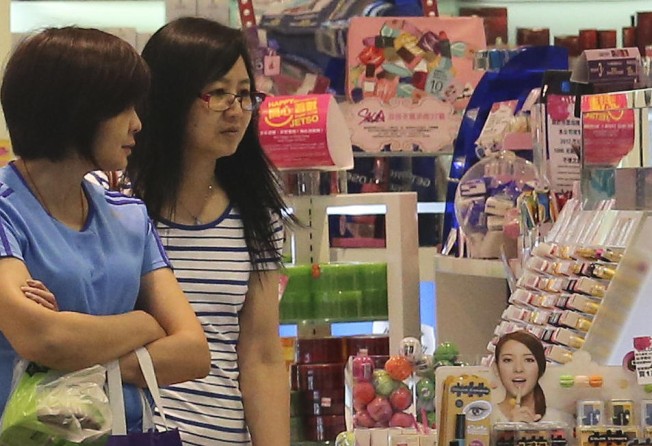Hong Kong shop landlords face further rental pressure as China cuts import tariffs
Beijing's decision to cut import tariffs on some goods will give tenants more bargaining power

For shop landlords in Hong Kong this year, bad news is never far away.
Topping their worries in 2015 has been the decline in the number of tourists from China, which has taken its toll on shop rentals in the city, pushing up vacancies in prime shopping districts. Now, landlords face heightened concerns after the central government's decision to cut import tariffs on a range of consumer goods.
"The move will have an impact on Hong Kong's retail sector and shop landlords," said Helen Mak, a senior director at Colliers International.
Although the reduced tariffs would not immediately drag down shop rentals, tenants would have more bargaining power in rental negotiations during contract renewals, Mak said.
As Hong Kong's reputation as a shopping paradise diminishes, Mak said international brands could consider China as an option for the opening of flagship stores in the future.
China's Finance Ministry on Monday said that from June 1, it would lower import taxes for some items, including suits, fur garments, skincare products, baby food and diapers, by an average of more than 50 per cent. For cosmetics, the tariff will fall to 2 per cent from 5 per cent, while the tax on diapers will drop to 2 per cent from 7.5 per cent.
The move came after a statement by the State Council in April that tariffs would be cut for high-demand imported products in an effort to boost domestic consumption after economic growth slowed to 7 per cent in the first quarter of this year.
Thomas Lam, the head of valuation and consultancy at Knight Frank, said the number of same-day visitor arrivals from China would drop 15 per cent to 20 per cent in the coming 12 months, hit by the cut in import tax and the previously announced restriction on multiple-entry tourist visas for residents of Shenzhen which is just across the border from Hong Kong.
As a result, shop rents in areas close to the border would drop 10 per cent 20 per cent this year, against 5 per cent to 10 per cent in urban areas, said Lam.
Retail sales fell 2.9 per cent year on year to HK$38.4 billion in March.
Tom Gaffney, a regional director and head of retail at JLL, said he expected the impact of the tariff cuts on the Hong Kong retail market would be limited as visitors would still come for the shopping experience and the confidence in product quality.